COVID-19 SPECIAL
Covid-19 has led to a botanic boom in Singapore as more people become plant parents to relieve stress
Sign up now: Get ST's newsletters delivered to your inbox
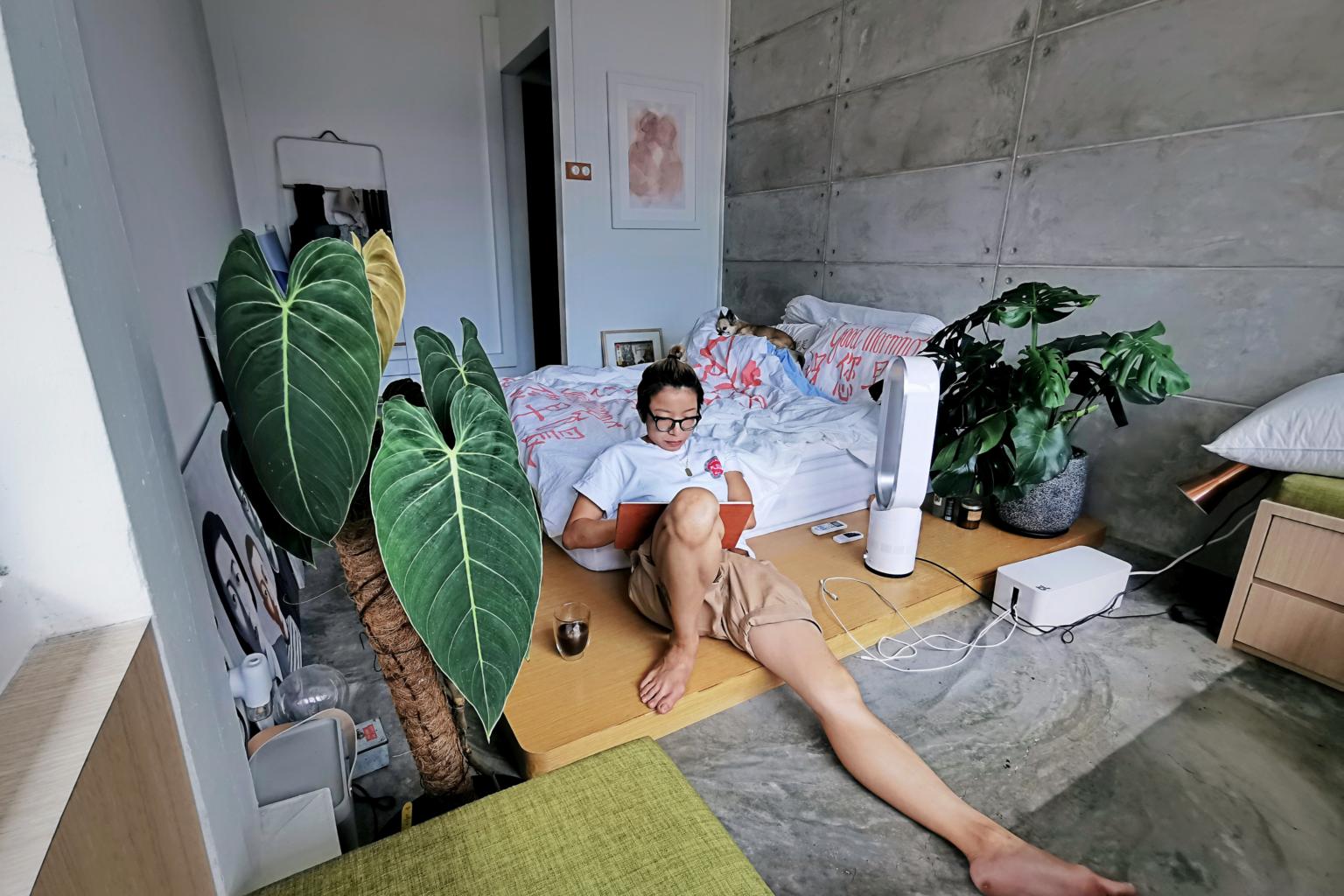
Ms Patricia Law bought more than 50 plants during Singapore's two-month shutdown of non-essential services and workplaces.
PHOTO: COURTESY OF PATRICIA LAW
Follow topic:
Bought some greenery to spruce up your home during the circuit breaker? You are in good company.
Ms Patricia Law, founder of social media agency Goodstuph, bought more than 50 plants during Singapore's two-month shutdown of non-essential services and workplaces.
Ms Law, who is in her late 30s, started collecting plants last year when she bought some for her office. She says with a laugh: "I kind of started progressively, healthily growing my collection. Then I went out of control during the circuit breaker."
She now has 74 plants at home - a 1,000 sq ft walk-up apartment in East Coast.
Her plants are thriving, she says, because she is working from home - she has more control over their watering needs and can also move them around according to the sunlight.
"It's very therapeutic to care for plants. Sometimes you get a comeback kid - a plant that doesn't do well or looks limpy and you blame yourself as a plant parent but after a while or after watering, it starts thriving - it's very satisfying," says Ms Law.
Ms Nurul Atirah, a 33-year-old civil servant, similarly developed an indoor plant addiction just last month and has since collected about 80 plants.
The mother of four children, whose husband is also a civil servant, says affordable indoor plants on Shopee sparked her interest. The area next to the living room window in her five-room Bukit Panjang flat is now dedicated to her plant collection.
"I think staying home so much made me want to do something different. It really helps me to destress and pass time quickly," she says, adding that her family has been supportive of her hobby so far, with her kids naming her plants and picking favourites.
Ms Nurul, who has arranged her plants on white and brown shelves, stools and step-ladders, says the pop of green has made her home a nicer place.
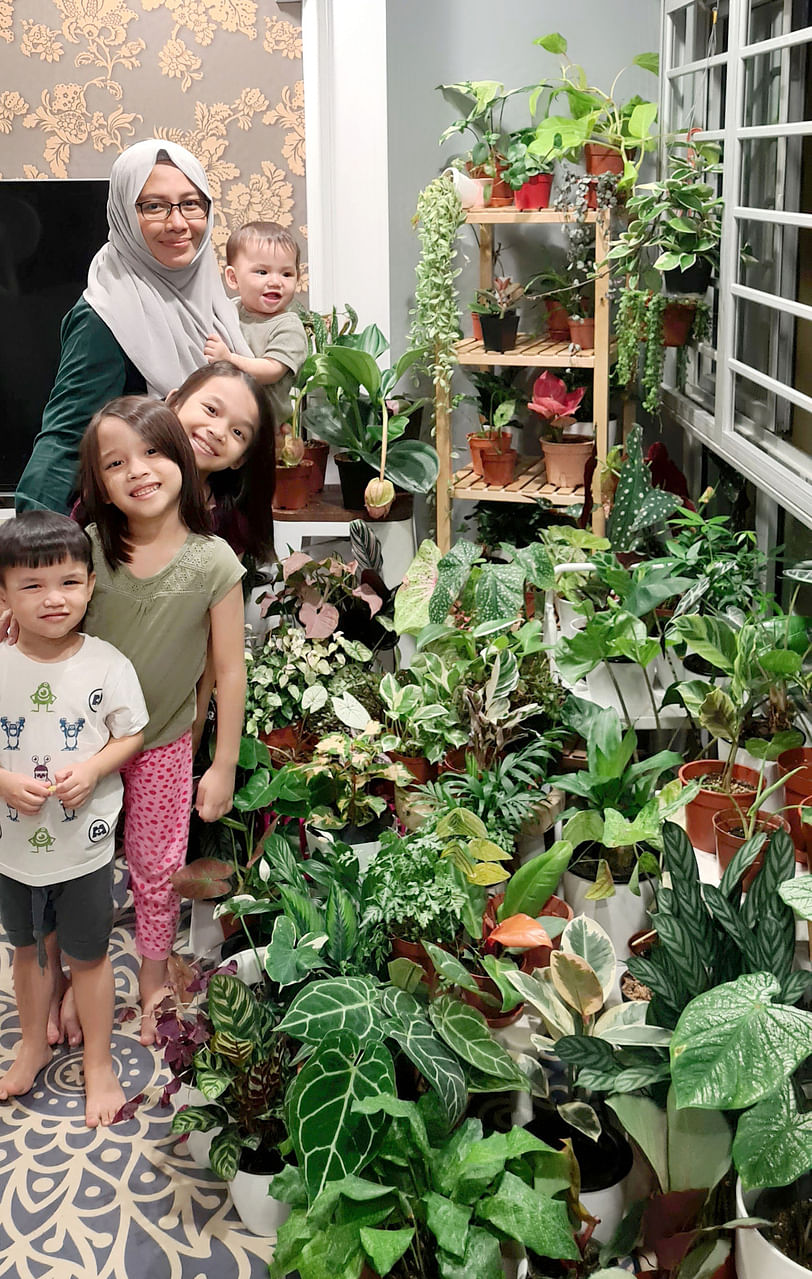
japlant30 - Ms Nurul Atirah and her four children in the corner of her living room dedicated to her plant collection.
PHOTO: Courtesy of Nurul Atirah
She says: "Previously there were only two artificial plants in that spot. I've given them away, they looked a bit sad. Now these plants are all live and I get to see them grow and there's a variety so it contributes to the aesthetics of the home."
For Ms Cheryl Ann Lee, 35, plants have been a big part of her life for the last five years. She has a plant collection with more than 120 plants in her four-room Toa Payoh flat.
Ms Lee, who runs a branding agency with her husband and also started a botany side-business The Botanist & Her Thieves with three friends, bought her current home because it came with a spacious balcony where most of her plants are now placed.
Plant parenting has been especially helpful during the circuit breaker as more people spend time at home beavering in front of their computers.
"Tending to my plants gives me a mental break while working and these snatches of time away from the computer screen are a brief digital detox," she says.
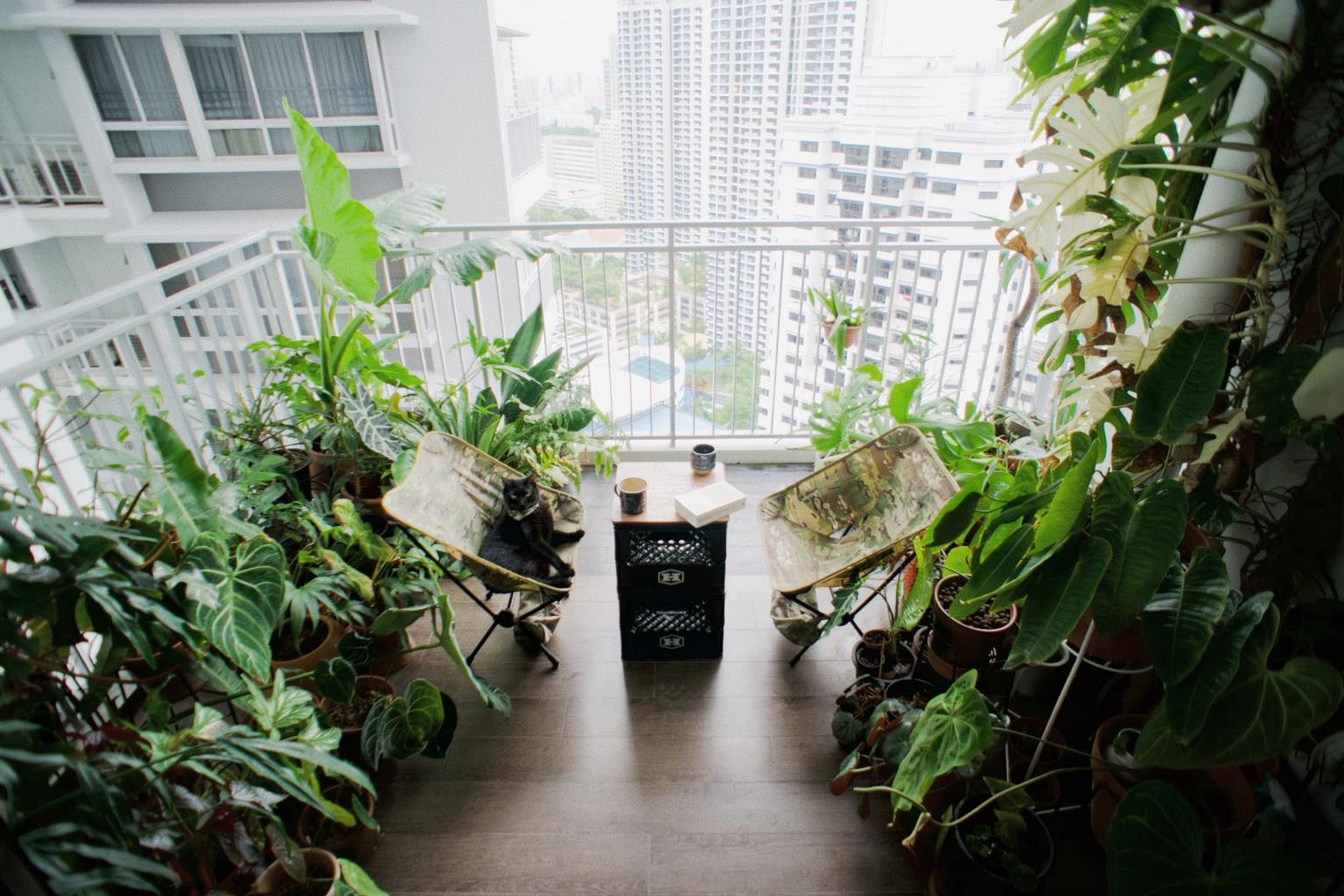
Like Ms Lee, those interviewed say parenting plants satisfies their craving to nurture and calms their minds. This could explain why there has been a big spike in demand for houseplants during the circuit breaker period.
Clinical psychologist Dr Carol Balhetchet says turning to nature in a time of isolation at home is an understandable reaction.
"Because of Covid-19, we were all locked in this sterile environment of our homes, but we need connection to nature. More plants give you the feeling that you are still connected to nature. It is an extension of your own space into the outside world."
She adds that on another level, picking up new interests - be it plants, crafting, baking or learning a new language - is a natural way to adapt to the circuit breaker measures.
"When you are isolated, it is important for your mental and emotional stability that you are still active."
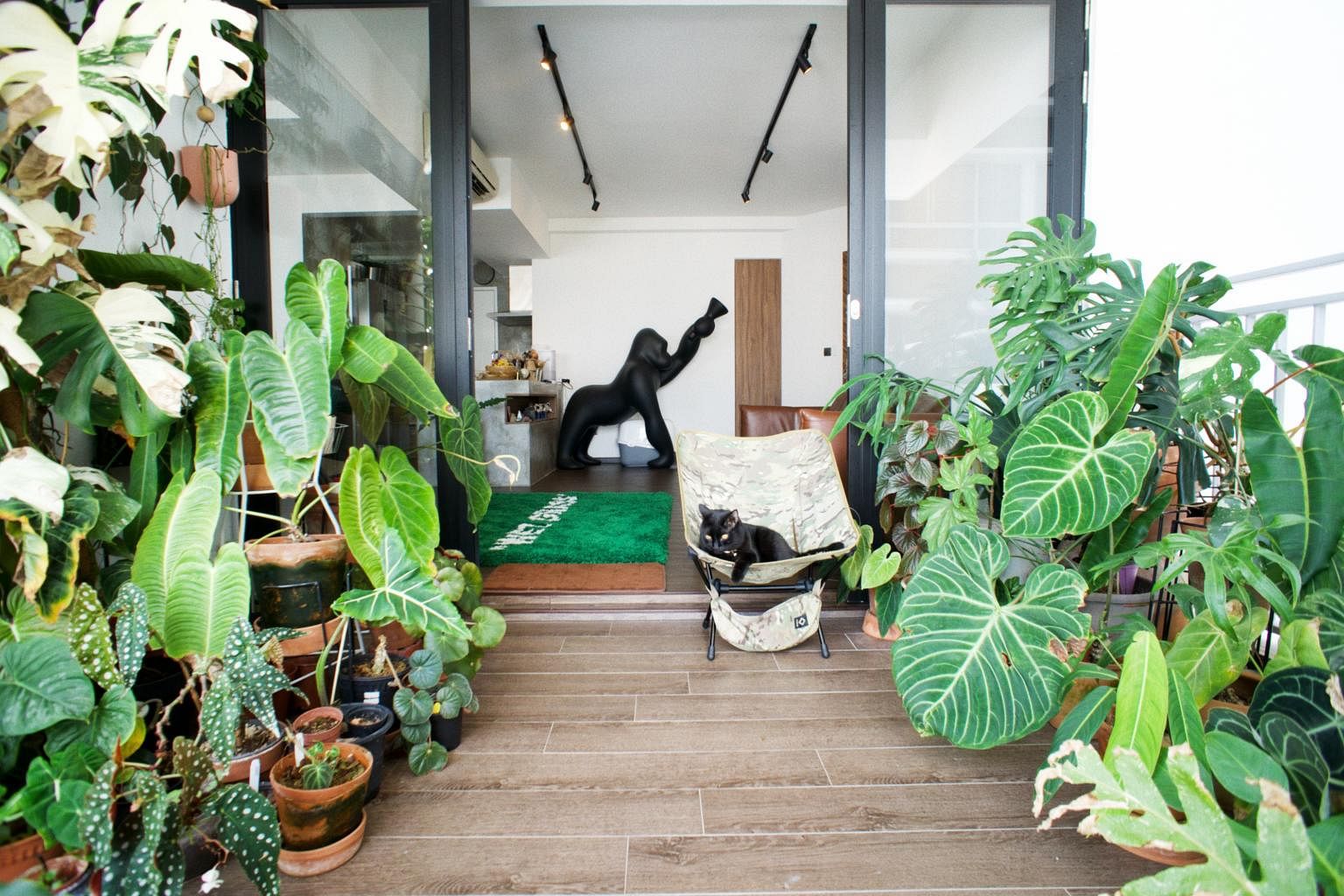
Terrascapes, a nursery specialising in exotic plants, saw a 10 per cent increase in sales. It sold about 1,000 plants in the circuit breaker period from April to June after it started retailing its plants online.
Terrascapes founder Sandy Soh says the trend is in part fuelled by social media - with clients often posting on their accounts to share how their plant babies are doing.
Interiors brimming with plants - termed "jungalows", a word play on jungle and bungalows - are also popular online.
SG Plant Club, an Instagram page that started posting only on June 4 pictures of various plant collections by local residents, has already attracted close to 1,000 followers.
Meanwhile, Mr Leo Tay, founder of nursery The 3 Keys, observed an increase in sales of 20 to 25 per cent during the same period. The number of followers of his Instagram account, which focuses on the plants he retails, also doubled.
Popular plant boutique Tumbleweed Plants saw a surge in demand for its products too.
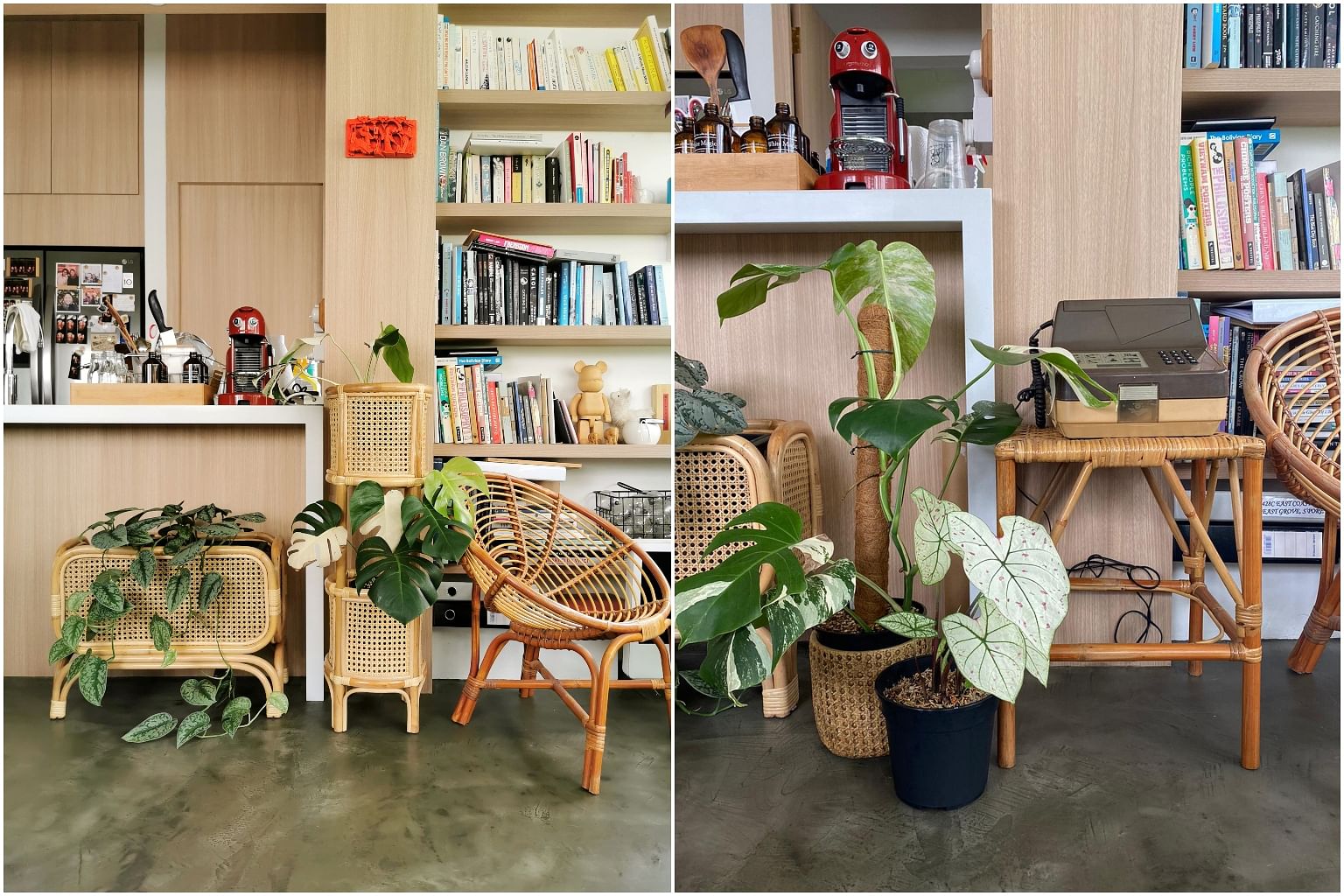
Local wellness company Super Farmers' founder Cynthea Lam says sales of her urban farming kits - three separate pots of plants growing kang kong, chye sim and kailan - doubled during the circuit breaker period.
The vegetables are ready to harvest in 14 days - similar to the length of one stay-home notice period - making them popular purchases.
Her farming kits can be grown indoors, even a hotel room.
She says: "The kits are designed for small urban spaces like homes or offices, They can grow pretty much anywhere, on a dining table, on a ledge. They don't need too much fuss or sunlight."
Similarly, ornamental plants that are easy to take care of have been the most popular products during the pandemic. A Tumbleweed Plants' spokesman said that the monstera deliciosa - a houseplant known for its large leaves with natural holes and the snake plant - known for its tall leaves - have been in hot demand locally due to their distinctive aesthetic traits.
These are also tropical plants that tend to do well in Singapore's climate.
The 3 Keys' Mr Tay says other plant species like the stephania, the everfresh tree and philodendrons have sold well too as they are comparatively easy to care for. Mini-bonsais have also been a hit, although they require more daily maintenance and care, due to its aesthetic appeal.
He explains: "When styling plants, a general rule is to pick either the pot or the plant - which one do you want to see? Some plants have very dramatic foliage so if you want the leaves to be the main attraction, pick a simple, solid-coloured pot and vice versa."
Mr Charles Loh, a graphic designer with a side business named Mossingarden creating botanical terrariums and selling plants, is also an avid plant collector. He says plants are some of the most affordable decorations for the home.
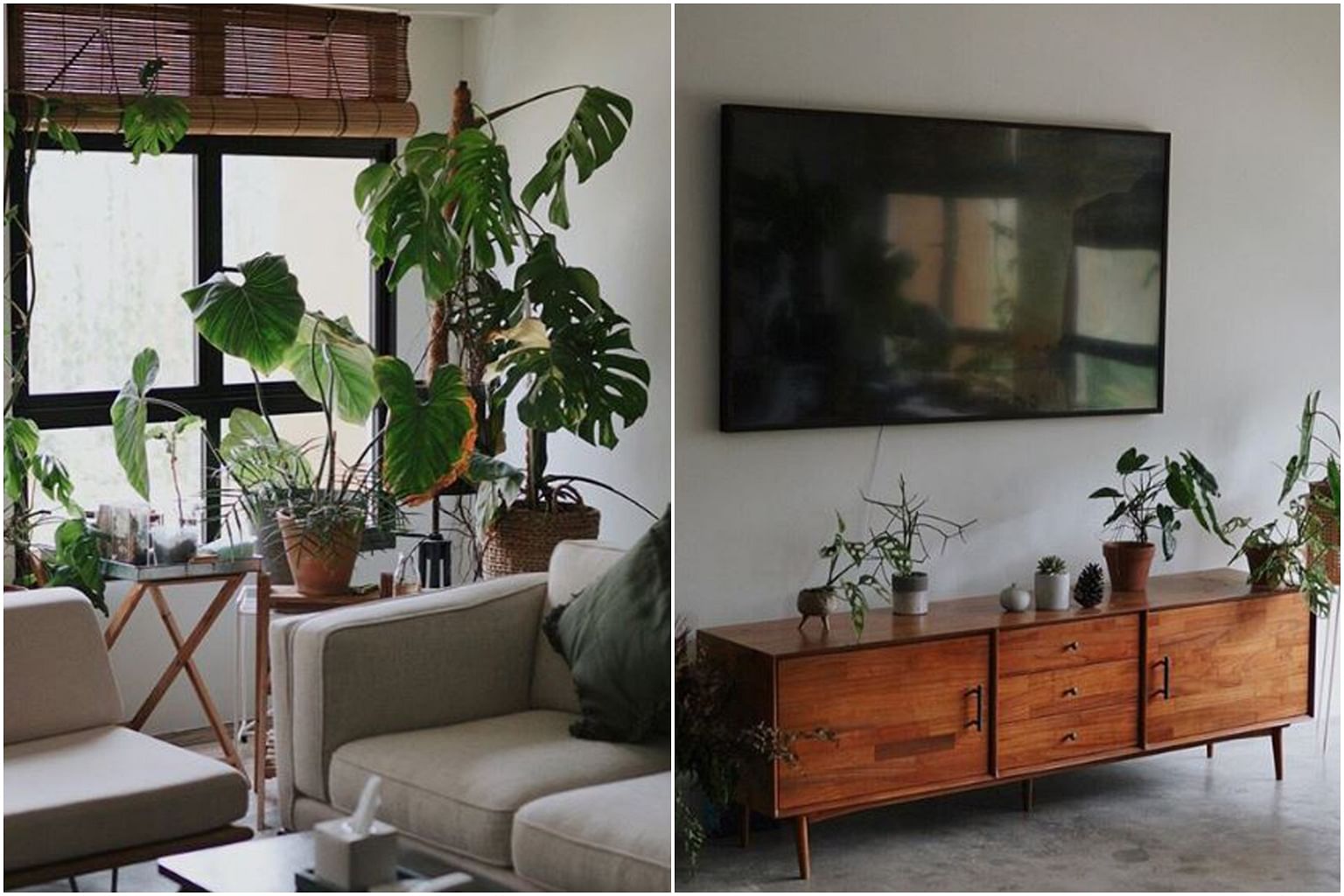
"Start small, don't buy something expensive or designer straight away. Find an underutilised spot in your home - maybe your shelves or window - they can brighten up a lot with plants."
While aesthetics may be important to budding plant parents who want to beautify their homes, Mr Soh says that ultimately a plant is a living thing to take care of.
"Don't just get a plant that you like. Get a plant that you can grow - something you have the right growing conditions for."

